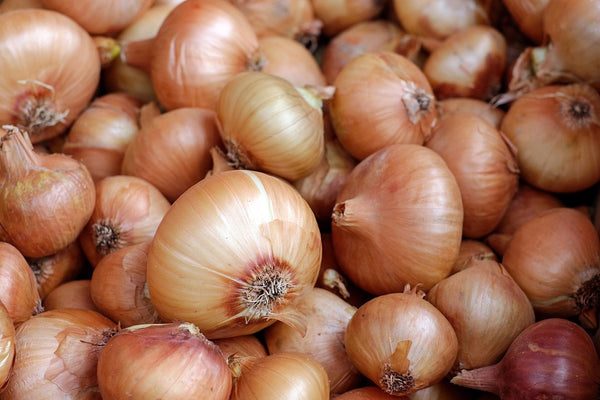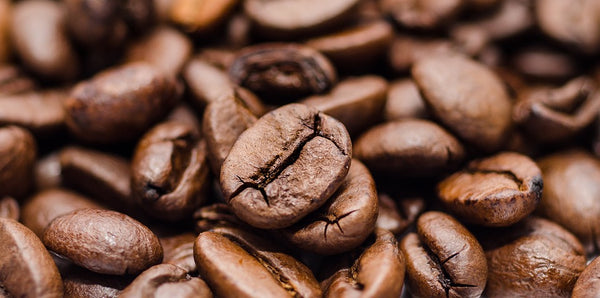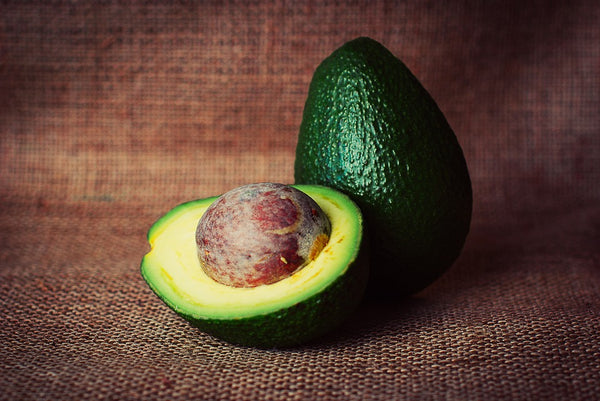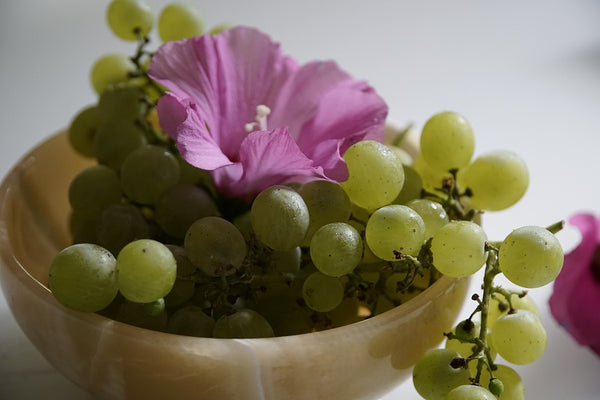Your happy home is hiding all sorts of horrible nasties and dangerous foods you shouldn’t feed your dog. Metabolisms differ greatly from human to human. These differences are even more significant from human to canine. Your favourite treats might be toxic for dogs, so it’s important to know what foods shouldn’t be shared.
1. Onion

Onions are the biggest culprit of all harmful foods found commonly around the house. On their own, raw onion isn’t naturally appealing to dogs but the problem lies with dogs’ best friends. Humans tend to cook onions into everything, in varying quantities. In fact, onion, garlic, chives, and leeks all belong to the same (Allium) family. Studies show that as little as 15 to 30 grams of onion per kilogram of the dog’s body weight can cause observably harmful changes in the dog’s blood.
2. Caffeine

Your life-saver in the morning. Not so much for your little best friend. Caffeinated foods and beverages, such as tea and coffee, are toxic for dogs. You shouldn’t worry about the odd lap or two from curious friends sniffing around your morning mug, but chowing down on coffee grounds and tea bags can be deadly so make sure you keep them away from your pups. Hyperactivity isn’t so cute when it leads to tachycardia or seizures.
3. Alcohol

Wine o’clock? As much as we hate to say it out loud, alcohol is a poison for both humans and dogs. We just (hopefully) make good decisions based on how much we know we can handle, how much we want to unwind, and how much we’re willing to pay for it in the morning... We probably don’t need to tell you about the effects of alcohol poisoning. Just picture that, but so much worse for your poor pupster as they have a far lower tolerance than humans do.
4. Chocolate

It’s common knowledge that chocolate is bad for dogs, and especially poisonous for smaller pups. The thing to note is that the darker the chocolate the more dangerous it is, due to the concentration of “methylxanthine”. Dark chocolate and cocoa powder have higher amounts of methylxanthine and so are more toxic. Just half a block of dark cooking chocolate is enough to seriously poison a 10kg dog. White chocolate on the other hand, while still not particularly good for dogs, would need to be consumed in far higher quantities before it reaches the danger zone.
5. Xylitol

Xylitol is an artificial sweetener, and one of the most toxic ingredients you’ve probably never even thought about. It’s more poisonous than chocolate, and it’s in everything. Well, not everything, but in sugar-free lollies, sweet treats, baked goods, chewing gum... Even just small amounts can cause liver failure, seizures, and hypoglycemia. Nothing sweet about that.
6. Dairy

Many dogs suffer from lactose intolerance, which means that they aren’t able to digest milk products effectively. They might get bloated, have diarrhea, or just a bad tummy ache. Some dairy products may be a little easier for your doggo to digest, and so might be okay in small doses as a treat now and then, but only with caution and not if they have a history of stomach sensitivity.
7. Avocado

Every part of the avocado is potentially poisonous to all animals. You wouldn’t know (right?) because they’re so delicious! They contain a fungicidal toxin called “persin”. Good for us, but not for most animals! With smaller doses or larger dogs, symptoms may present as gastrointestinal irritation (vomiting, diarrhea), but can cause fluid accumulation in the lungs resulting in difficulty breathing and even death when consumed in larger quantities or by smaller animals.
8. Grapes

Grapes (as well as raisins and sultanas) have been reported in more recent years to be a cause for renal failure. Experts aren’t quite sure what compound it is exactly in grapes that doesn’t quite sit well with dogs, but there sadly have been cases of fatality from 10 to 57 grams of grapes per kilogram of the dog’s body weight.
9. Peaches, Plums, Persimmons & Apricots

Juicy fruits! But the fruit itself isn't the problem. The pits inside peaches, plums, persimmons, and apricots are poisonous for both humans and dogs as they contain cyanide. As humans, we know to eat around the poisonous pit but dogs have never learnt not to. They're sometimes more inclined to bite into it or devour it whole. The seeds can also cause inflammation of the small intestine, so we'd recommend being extra careful when feeding your dogs any fruits.
10. Nuts

Not all nuts. Just some nuts. Specifically macadamia nuts and walnuts. Macadamia nuts and walnuts are commonly found in cookies and other baked goods. Macadamias contain a toxin that can affect the nervous system, the digestive system, and the muscles. Also, like humans, dogs can sometimes have other nut allergies, such as a peanut allergy, with varying degrees of severity.
(Source: https://www.ncbi.nlm.nih.gov/pmc/articles/PMC2984110/#CIT0012)
Feed your dog Real Dog Food!
Real Dog Food is batch-made fresh each week with only the very best of ingredients for the woofiest member of your family. It might seem like the best food for your best friend would be what you eat yourself, but your dog requires a specialised diet.
Is your dog a little more sensitive? You may need special food for dogs with allergies.

